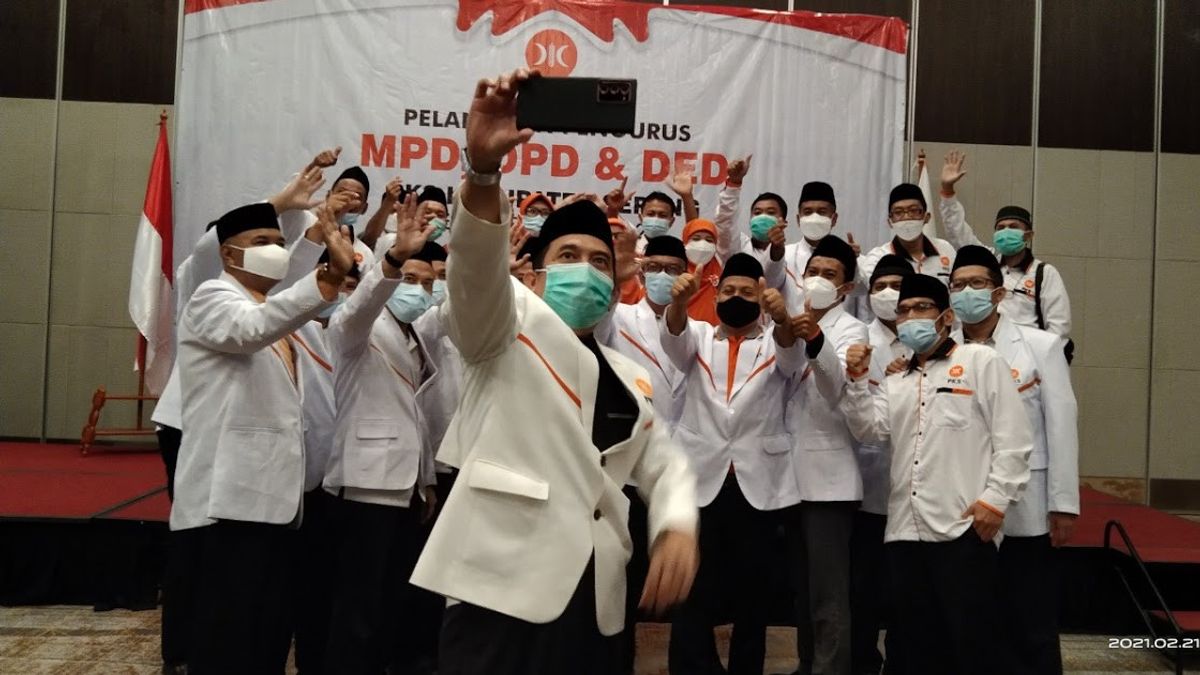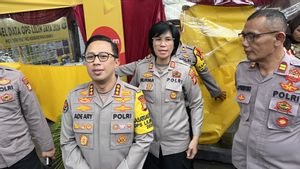JAKARTA - The Social Justice Party (PKS) is pushing for the revision of the Election Law to lower the presidential threshold or presidential candidate threshold (candidates). The reason is that this Islamic-based party prevents the rise of identity politics. The reason for the PKS is considered to be just an excuse in order to carry the presidential candidate in the next election. The reason is, identity politics in Indonesia is indeed a necessity.
"We saw that 2 presidential elections in 2014 and 2019 with 2 pairs of candidates were bad for democracy ... Therefore, PKS firmly lowered its proposal so that the threshold for president was 10 percent of seats in the DPR or 15 percent of the votes so that there were many candidates, there was contestation of ideas, no there is more division or identity politics, "said Mardani.
A political observer from Al-Azhar University, Ujang Komarudin, said that the reason PKS pushed for the lowering of the normative presidential candidate threshold so that it could be accepted by the public. "The lowering of the threshold is so that PKS cadres can run for presidential or vice presidential candidates," said Ujang when contacted by VOI.
The move to encourage the reduction of the nomination threshold to reduce identity politics needs to be appreciated. However, such an excuse is like presenting empty words. This is because identity politics in this country has been rolling for a long time.
Before discussing further how identity politics revolves in the country. We need to know what identity politics really is.
Understanding identity politicsAs written by Yeni Sri Lestari in the Journal of Politics and Policy Universitas Brawijaya (2018) on political studies, identity politics needs to be distinguished from political identity. Political identity or political identity is defined as a construction that determines the position of interests within the ties of a political community. Meanwhile, identity politics itself is a political mechanism for organizing identity (both political identity and social identity).
In other words, identity politics actually organizes identity politics. The actors of identity politics play social identities such as religion, class, race, ethnicity, gender, and sexuality as well as political identities such as nationalism and citizenship.
The identity is organized in such a way as to bring out a person's sense of belonging. The danger is that this practice also often implies an understanding of the identity of marking people who are different from us or what is called a sense of otherness.
In his writing entitled "Identity Politics in Indonesia: Between Nationalism and Religion" Yeni explains that the issue of identity politics is more aimed at being a political tool to gain power. In practice, identity politics can be interpreted as the use of political rhetoric as we call it "native people" who want power. "And for 'immigrants' they must relinquish power," he wrote.
Political expert Hendri Satrio explains that eliminating identity politics is a necessity. "From the past, identity politics has also been used. Javanese and non-Javanese are also identities," he told VOI.
Identity politics in the world of politics have been intertwined for a long time. It's just that, not necessarily used directly. "Because if it is used directly, it will make glassware."
Meanwhile, what makes it worse is when identity politics is overused. "For example: don't choose Javanese people, only choose certain ethnicities. So that's not allowed to overdo it," said Hendri.
According to Hendri, the use of identity politics for promotion is still allowed. However, he emphasized that there should not be anything in the nature of punishment.
"For example, for promotion, let's choose Javanese people because Javanese people are friendly, that's okay. But for punishment, like having to choose Javanese people, otherwise they can't live in Java, that's too much," he explained.
Practice identity politicsAccording to Mayrudin and Akbar, in their writings published in the MADANI Journal of Politics and Social Affairs (2019), identity politics is often carried out by political parties in achieving electoral targets, including PKS. "Identity politics is often practiced by PAN, PKB, and PKS and is imperative in achieving electoral targets," he wrote.
According to Mayrudin et al. (2019) the practice of identity politics can be seen from the political phenomenon in 2017. "The strengthening of Islamic identity sentiment during the 2017 DKI Jakarta regional elections and ahead of the 2019 elections, through the MUI Fatwa Guard National Movement or GNPF-MUI which attracted public attention."
Mayrudin et al explained that the political mobilization against the case of blasphemy committed by the then Governor of Jakarta, Basuki Tjahaja Purnama alias Ahok, had opened a crucial political space. One of them is "the question of Islamic parties, including PKS, which seeks to take advantage of this momentum by enlarging the discourse on identity politics that they have already voiced."
"The characteristic inherent in a group, in this case an Islamic patterned party, is the growing feeling in a community labeled religious identity among its members or cadres. This feeling raises an awareness of a strong relationship. Besides that, a feeling of" belonging "to its members also grows. -Each, "wrote Mayrudin et al.
Meanwhile, a year after the DKI regional election, Deputy Chairman of the PKS Syuro Council, Hidayat Nur Wahid himself once said he was not worried that identity politics would divide the nation. At that time, this person who is often called HNW asked that identity politics not be interpreted negatively. Because, it cannot be separated from individuals and political practices.
"Because identity politics is everywhere so identity can be secular party identity and Islamic religious identity, it can be Christian identity, Indonesia can also be identity. It's strange if there is no identity. What is our identity? We are Indonesia. Indonesian identity, you know." said HNW.
BERNAS OthersThe English, Chinese, Japanese, Arabic, and French versions are automatically generated by the AI. So there may still be inaccuracies in translating, please always see Indonesian as our main language. (system supported by DigitalSiber.id)












